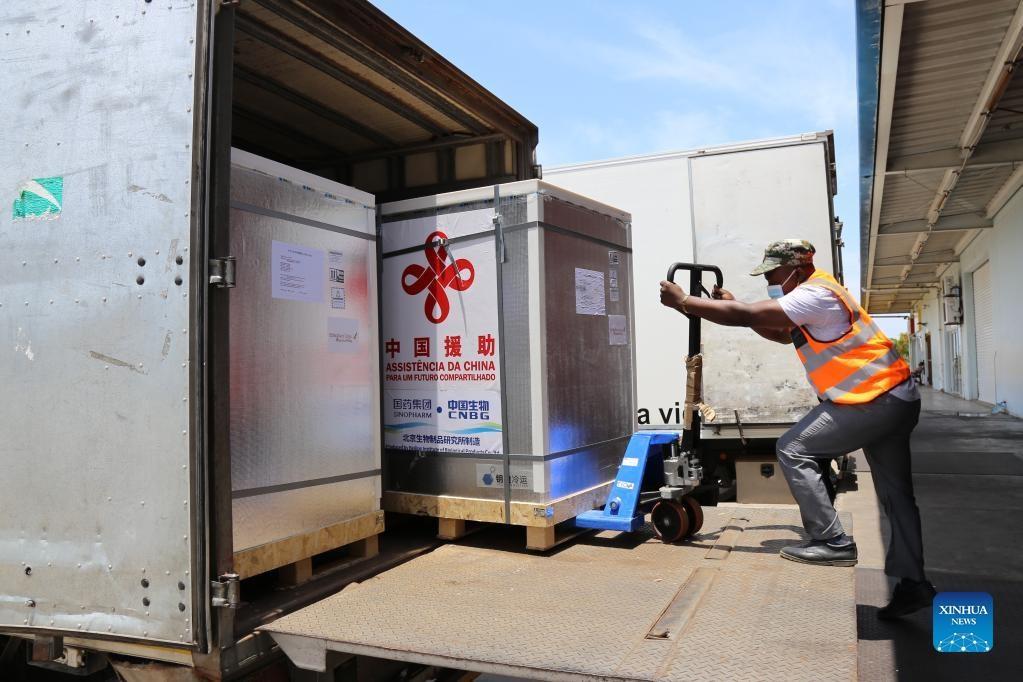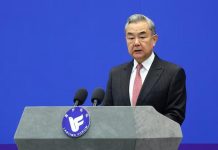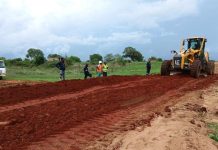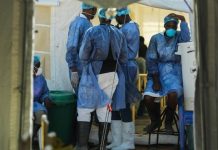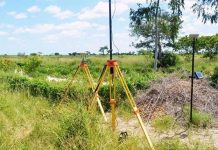Africa-Press – Mozambique. The Chinese ambassador, Wang Hejun, on Monday in Maputo formally delivered a million doses of the vaccine VeroCell, produced by the Chinese company Sinopharm, to assist in Mozambique’s fight against the Covid-19 pandemic.
Speaking at the handover ceremony, Health Minister Armindo Tiago stated that the latest donation came “at an opportune time” as the country is seeing a resurgence in infections, hospitalisations, and deaths from the coronavirus. According to the Minister, there have so far been seventeen confirmed cases of the Omicron variant.
He noted that the vaccines will allow for the acceleration of the national vaccination campaign and called on the public to strictly comply with preventive measures.
For his part, Ambassador Wang said that the donation is in line with the promise made by Chinese President Xi Jinping at the eighth ministerial conference of the Forum on China-Africa Cooperation (FOCAC) to provide a billion doses of Covid-19 vaccines to the African continent.
Also on Monday, the health authorities launched a “vaccine caravan” to bring, in its pilot phase, vaccines to high population density areas in the capital Maputo, using the Johnson & Johnson vaccines donated by the United States government. This vaccine has the advantage that it has a single-dose regimen.
In other developments, the British government is expected to shortly review its decision to put Mozambique and other southern African countries on its “red list” of countries with extremely strict travel restrictions. The country had been put on the list as Britain scrambled to block the spread of the Omicron variant that was first identified by scientists in South Africa.
However, on Monday Britain’s Health Minister Sajid Javid told parliament that it is likely that the number of new Omicron infections in the UK was likely to be at around 200,000 a day and doubling every two to three days. The spread of the Omicronn variant can have nothing to do with the relatively small number of visitors to the UK from southern Africa.
On a positive note, the first real-world study of Omicron has found that it appears to cause less severe illness in South Africa and that two doses of the Pfizer-BioNTech vaccine offer about seventy per cent protection against hospitalisation. The protection against infection however drops from about 60-70 per cent to just 30 per cent.
There has also been an announcement from Pfizer that its antiretroviral pill, which is awaiting authorisation from the regulators in the United States, the European Union, and the UK, offers ninety per cent efficacy against hospitalisation and deaths in high-risk patients.
In a study involving 2,200 people, none of those receiving the pill died whilst there were a dozen deaths in the placebo group. Other data shows a seventy per cent reduction in the risk of standard-risk patients being hospitalised. It is expected that this pill will also be effective against the Omicron variant.

